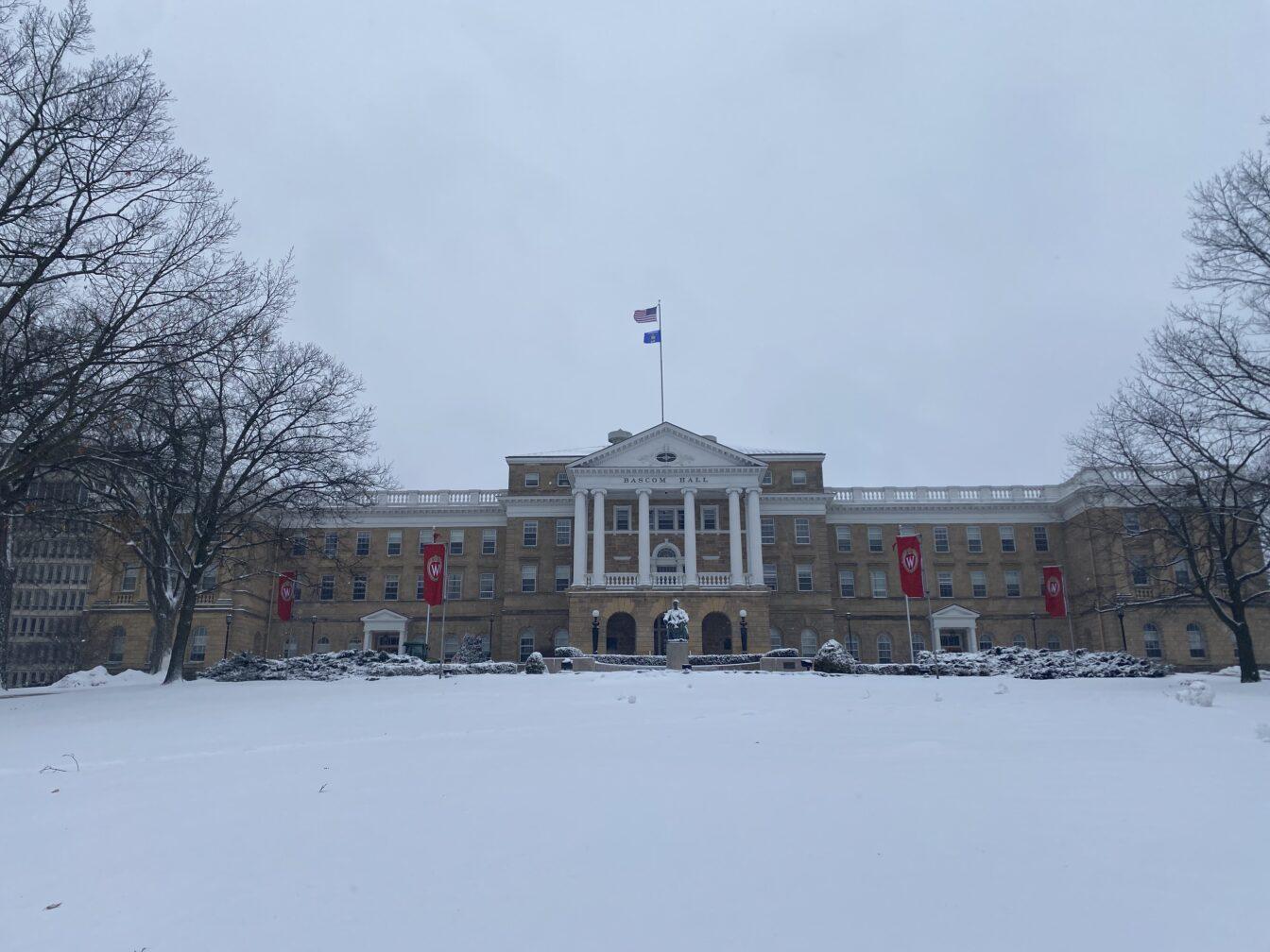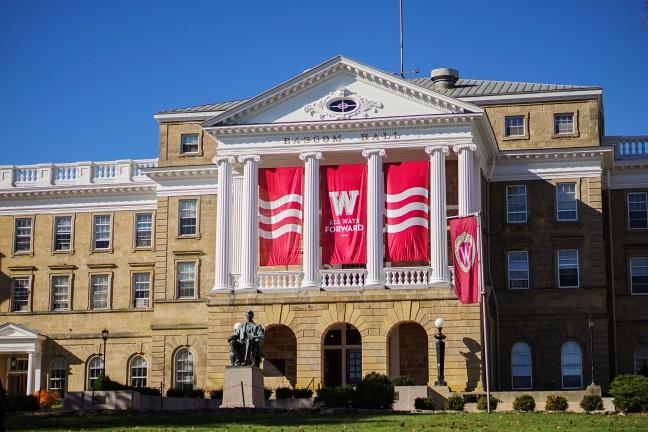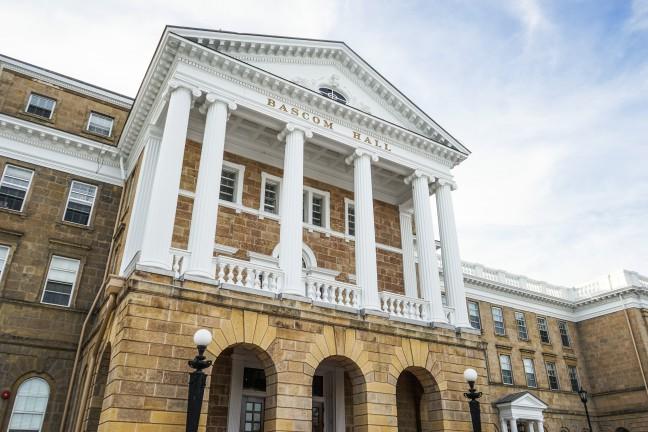As the University of Wisconsin moves to hire a new chancellor following Rebecca Blank’s departure for Northwestern University after this academic year, the campus finds itself at a crossroads on a series of issues facing students, staff and faculty.
The COVID-19 pandemic revealed shortcomings in the university’s ability to create a productive, safe and inclusive learning environment, from accommodating increased mental health problems to paying students enough amid rising inflation rates.
Here are six approaches to issues The Badger Herald Editorial Board believes the new chancellor must take upon arriving on campus.
Address culture of academic abuse
Following the release of the Wisconsin State Journal’s series on academic abuse at UW over the past six years, the next chancellor has quite a bit of reckoning to do. The investigation found nine employees investigated for violations of academic bullying policies, which the university refers to as “hostile and intimidating behavior.” Of the faculty members investigated, four are still employed at UW and two continue to work as student supervisors in labs at other universities.
While UW admin considers our research institution “ahead of the curve” in monitoring academic abuse – including a hat-tip in a research paper that claimed UW is making “encouraging” progress to rein in bullying – the horrific stories of graduate students highlighted by the State Journal show that “encouraging” is not enough.
The power dynamic between researchers and students and administrative responsibility loopholes surrounding academic abuse have led to irredeemable harm and sometimes damning career consequences for UW students. We must demand a centralized reporting process to ensure complaints are not bureaucratically buried and mandatory training for employees who work with graduate students — we should not settle for a mere resource website.
The university must also stop encouraging students to pursue “interpersonal” interventions before reporting incidents to prevent further harm and retaliation. Some students have pointed out UW’s case-by-case approach fails to prevent abuse in the first place and neglects to address the greater cultural issues in academia.
The new chancellor will come to UW at a crucial moment to address academic abuse under the warranted critical eye of faculty, students and news media. Whether or not Blank’s replacement rises to meet the cultural challenges of academic abuse and foster inclusive conversations to promote tangible change will be a test our next chancellor cannot afford to fail.
UW confronts issue of intimidation, academic abuse culture on campus
Raise the minimum wage for student workers
It is absolutely imperative the next chancellor raises the minimum wage for student workers to $15 an hour. The chancellor must also create a phased-in plan to continue to raise it in the future at a rate that keeps up with inflation and makes working at the university a livable endeavor.
By its own estimate, the university currently employs roughly 9,000 students who may work a maximum of 25 hours a week during a 15-week semester.
In the hypothetical and grossly overestimated scenario in which 9,000 students worked 25 hours a week for all 30 weeks of the academic year at a rate of $15 an hour, the total payment UW would owe student employees comes out to $101,250,000 — roughly 2.8% of the UW System’s $3.6 billion operating budget.
A minimum wage boost also provides the school with a competitive edge in filling out its labor force. An overwhelming majority of Wisconsin companies and businesses have recently decided to raise their pay scales, so it is not difficult to envision scenarios in which students who may have been enticed to work for UW seek out alternative forms of employment.
The average hourly wage in Madison was $27.73 in 2020, meaning UW is already lagging dangerously behind local employers and runs the risk of losing a significant portion of its labor force unless significant changes are made. Reflections of this impending crisis can be seen in the Wisconsin Union, RecWell and dining halls’ battles with high turnover and short staffing throughout the academic year.
ASM has already voiced strong support for raising the minimum wage to $15 an hour, and a majority of students voted in favor of a referendum to boost student worker minimum wage. The next chancellor must follow suit to collaborate with student leaders to raise wages and improve working conditions for students or face the inevitable consequences.
ASM votes to increase minimum wage for student positions, discusses sustainability
Prioritize funding for sexual assault services
The 2019 Association of American Universities survey found that 1 in 4 undergraduate women at UW had experienced a form of nonconsensual sexual conduct since beginning college. These statistics are nothing if not reflective of UW’s shortcomings in handling sexual violence.
One UHS nurse practitioner told The Badger Herald this year she was disheartened that after more than 20 years at UHS, she has not witnessed a decrease in the number of sexual assault cases at UW. This repetitive cycle needs to change, and the next administration needs to lead the charge.
First, UW needs to set a precedent that students will face severe consequences for any issues pertaining to sexual assault, which UW has failed to demonstrate. In 2018, when UW football player Quintez Cephus was accused of allegedly assaulting two women, Cephus did not face legal consequences, was allowed to return to the UW football team and was later drafted into the NFL.
When the university fails to adequately respond to reports of an assault with severe consequences, it makes students feel unheard, unsupported, and ultimately unsafe. The university must deal out harsher punishments toward student rapists — regardless of their stature.
UW has seen improvements in its response to sexual assault, including UW Professor Kate Walsh’s $500,000 grant from the U.S. Department of Justice to expand sexual assault services at UW with an on-campus forensic nurse program and provide more victim advocacy support. Prior to Walsh’s program, UW students who had experienced sexual assault had to travel all the way to Meriter Hospital to receive a forensic exam with a rape kit.
While Walsh’s program is a step in the right direction, it is not enough. More funding needs to be allocated to survivor services from the university to help with the ongoing expansion of these services.
According to a petition created by Promoting Awareness, Victim Empowerment (PAVE), increasing funding for survivor services will expand hours of availability for services, which would allow for more crisis support services and drop-in services at a variety of accessible locations across campus. Increased funding also would permit UW to hire more staff members and advocates to better equip a currently small team that is forced to support over 40,000 students’ needs.
Even with more funding for survivor services, the university must act in a proactive manner rather than a reactionary one and foster more conversations about how to address sexual violence. The university should not solely rely on short online modules or student organizations like PAVE or Sex Out Loud to educate students about this highly important and sensitive issue after first-year students complete mandatory orientation trainings.
To the new chancellor — prioritize creating innovative funding and grant opportunities to support survivors instead of accepting the status quo that plagues sexual assault responses at universities across the country. Most of your predecessors have avoided doing so to the determinant of every victim.
Not enough, not yet: UW makes progress on sexual assault response, but shortcomings persist
Accelerate sustainable investment on campus
UW has made significant progress in recent years to decrease its carbon footprint. In 2021, the university won the U.S. Department of Education’s Green Ribbon Sustainability award after decreasing its greenhouse gas emissions by 38% between 2007 and 2018, among other achievements like limiting campus energy consumption and total waste.
UW also continues to expand its Office of Sustainability, which has led renewable energy initiatives like using a 20-megawatt solar field and increasing efficiency at its Charter Street Heating and Cooling Plant.
While this progress is substantial, it should not be used merely as a convenient way for the university to tout efforts to combat climate change. Instead, university leadership should prioritize sustainable investments as the campus redevelops aging buildings and utility systems. UW also needs to invest in and conduct research to contribute to more environmentally friendly infrastructure on campus and beyond.
The campus must make a specific plan to phase out natural gas in place of renewable energy sources like solar and wind. All new buildings on campus like the L&S Levy Hall and the Bakke Recreation Center should also be LEED — or Leadership in Energy and Environmental Design — certified to increase campus energy efficiency.
UW has habitually avoided addressing its reliance on fossil fuel investments. The UW Foundation and Alumni Association, known as WFAA, invests nearly $124 million in oil and gas companies each year. If we want to become a sustainable campus, the next chancellor must address the elephant in the room and work with other UW campuses to divest from fossil fuels altogether.
Dying to divest: UW students fight for climate justice on campus
Expand mental health services
Finally, the drowned-out call for help that has persisted on campus for far too many years — more mental health services. The COVID-19 pandemic exacerbated an explosion of mental health issues among college students, increasing rates of stress, loneliness and suicide across the U.S. At UW, students solicited more mental health support and developed problems such as eating disorders related to anxiety and depression.
These increases revealed UW’s insufficient infrastructure for supporting student mental health needs. Long wait times to get mental health counseling at UHS continue, making it hard for students to receive consistent help beyond crisis services.
It is unacceptable for UW to still treat mental health services as supplementary when in reality they are critical to students’ college success and in some cases, a matter of life and death. UW should be overwhelmingly willing to fund UHS mental health services when they contribute hundreds of millions of dollars to their athletic department and chancellor’s salaries.
While UW has made small progress to expand its services recently by offering new varieties of free services to students or hiring new mental health providers focused on serving people of color, it is far from enough. UHS’s Mental Health Services should receive a complete overhaul with the necessary funding and segregated fee increases.
The department should add more employees to make sure students can receive counseling within days of scheduling an appointment and have a wider range of services to choose from. They should make in-person counseling available as students do not always have a safe place to conduct intensely personal conversations over Zoom, let alone online services being less direct.
Rising mental health problems will continue beyond the pandemic. It is up to new leadership to figure out how to create a system that provides safe, accessible services for all students to better navigate mental health issues on campus in the future.
Focus on real representation, not the numbers
For many, the UW campus is home away from home. For most students of color, home is often nestled within the Red Gym, teetering at the edge of the university, siloed in a corner away from the rest of campus.
While UW has shown a slight enrollment increase for marginalized students in incoming classes, this means little if the university doesn’t create an inclusive environment for students to step into and if students arrive at UW only to be subject to microaggressions. BIPOC students are more than an educational opportunity for white students — and UW must treat them so.
We want the next chancellor to ask the right questions: is meaningful change slow or are UW’s existing systems designed to make it slow? Students have been advocating for a more inclusive campus for decades — an exhausting task made harder when administrators take advantage of existing power dynamics to make it difficult for BIPOC students to meet with them and have conversations that lead to meaningful change.
UW benefits from the free intellectual and emotional labor of BIPOC student activists who are the driving force behind new campus systems, structures and policies. Yet administrators have a pattern of hiding behind their titles and busy schedules, erecting barriers when they should instead seek those student perspectives and follow up with real action. To UW, diversity and representation must mean more than numbers to include in press releases.
We want the future chancellor to reject UW’s long-held tradition of having a scarcity mindset when it comes to underrepresented communities. From the next chancellor, we seek something different. Something better.
UW must combat its institutionalized racism, and it shouldn’t fall on student activists to do the labor when the chancellor — who is being paid six figures — is meant to oversee student and university success.
Different century, same fight: Black students battle for similar causes half a century later
Make a Better UW
While The Badger Herald Editorial Board recognized these six issues as key concerns from this academic year, there is still plenty of work to be done on campus surrounding other imperative issues such as increasing diversity and representation among faculty and students, making campus more accessible for students with disabilities and so much more.
Whoever the new chancellor is, we encourage you to take concrete steps to fix these problems. We further challenge you to do so despite the strong pushback you will inevitably receive when trying to change these historic shortcomings.
The Badger Herald Editorial Board serves to represent the voice of the editorial department, distinct from the newsroom and does not necessarily reflect the views of each staff member.


















